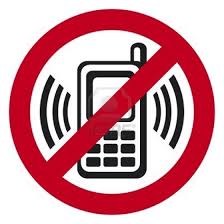 Many of our Tampa Bay, Florida clients facing foreclosure want to speak with their mortgage company and reach some kind of agreement for a loan mod, deed in lieu, cash for keys or short sale. Many do not. They’ve been there and done that and no longer want to receive in some cases hundreds of calls from a mortgage company.
Many of our Tampa Bay, Florida clients facing foreclosure want to speak with their mortgage company and reach some kind of agreement for a loan mod, deed in lieu, cash for keys or short sale. Many do not. They’ve been there and done that and no longer want to receive in some cases hundreds of calls from a mortgage company.
So what do we recommend clients do in these situations? Well first of all, any company which calls your cell phone after you verbally tell them not to is acting in violations of the Telephone Consumer Protection Act (“TCPA”). If you have filed a bankruptcy, all calls regarding a debt are generally prohibited. All calls after you send a cease and desist letter are generally prohibited.
The reason I say generally prohibited is because there are some areas that may be allowed. For instance, a notice required by Florida Statute to send you information about cancelled homeowners insurance or escrow notices may be fine. But these are generally letters, not phone calls. However, even these notices are potentially improper if they address a debt being owed or otherwise appear to be an effort to collect a debt. We presently are involved in a class action in the Middle District of Florida, Tampa Division, of the U.S. Bankruptcy Court, on behalf of a client who continued to receive notices about insurance and escrow that appeared to state repeatedly that he would be charged for this debt — and he had filed bankruptcy and had obtained a discharge of all debt associated with the mortgage!
What about if you’ve tried a prior loan mod and for whatever reason it didn’t work and you don’t want to try again. Say the home is simply unaffordable to you or you’ve made a decision to go elsewhere at some point when the foreclosure ends. In those cases, it’s best to inform the mortgage company that you no longer wish to try to modify the loan. Then they have no basis to continue to call. If you don’t clearly tell them that you no longer want to receive calls and you are not interested in any loan mods, they may still have a right to call. Write down who you speak with, when and what was said in the call where you tell them to STOP calling you. Keep that note.
A recent case In re Culpepper, 481 B.R. 650 (D. Oregon 2012) supports the homeowner’s ability to stop the calls when they clearly inform the lender that they do not wish to continue any loan modification discussions. In that case, the homeowner was awarded $1,000 per call where she could show that she did not want a mod, had told them so, and was distraught when they continued to call anyway. The award also included her attorney’s fees. The arguments that the lender used – that they had to call to offer various governmental programs – was not successful in that case.
So the motto here is: If you don’t want to speak with your mortgage company any longer: 1) tell them you no longer wish to discuss a loan mod or other options; 2) tell them to stop calling your cell phone; 3) follow up in writing if they request (and we generally suggest this as well); and log your calls (write down the dates and times; take a screen shot; get cell phone records online). If the calls still persist there are substantial penalties available to you that a consumer lawyer can help pursue.
For more information please call us at Arkovich Law. for a free consultation.
 Reboot Your Life: Tampa Student Loan and Bankruptcy Attorney Blog
Reboot Your Life: Tampa Student Loan and Bankruptcy Attorney Blog

